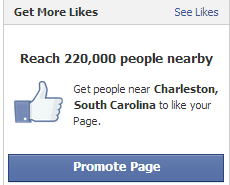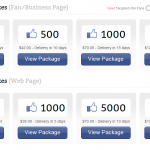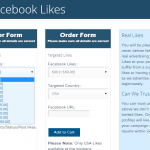So on Monday, I came across a video on Hacker News, called “Facebook Fraud,” from the Veritasium channel. Although the channel is mainly focused on science, the Facebook video is quite illuminating. The video, at the bottom of this post, goes into to detail on a practice that has been in the news lately, fake likes and click farms. Beyond click farms, and pay-for-like schemes, there is a very real, fundamental problem in the way that Facebook handles advertising, organic discovery and growth, and their platform overall. The problem goes much, much deeper than fake likes. Most of this is covered in the video below, but there are some crucial points that should be mentioned.
First a note on Facebook organic discovery and promotion. Whenever you make a post on Facebook, by default it is only shown to a percentage of people who like your page. As more people engage with your post, it is shown to more people who like your page. Therein lies the problem with fake likes. As the fake to real like ratio increases, it lessens the chance that your posts will be seen by your real followers.
Click farms are nothing new. We have known about click farms for years. Even Facebook admitted that at least 67.65 million fake accounts were in January 2014. All you have to do is search “buy Facebook likes,” and you get an almost infinite amount of links to these such click farms:
Again, these click farms are not the main problem discussed in the “Facebook Fraud” video. Yes, fake like do hurt you in the long run as it saturates the real likes, taking away opportunity to reach your real fans with each post.
 The real problem is that little box to the left. Veritasium’s creator, Derek Muller, documented a test that he conducted in the video. Muller set up a Facebook page for something called “Virtual Cat.” The about section describes the page:
The real problem is that little box to the left. Veritasium’s creator, Derek Muller, documented a test that he conducted in the video. Muller set up a Facebook page for something called “Virtual Cat.” The about section describes the page:
Virtual Cat is a virtual pet like none other. Here we’ll post only the worst, most annoying drivel you can imagine. Only an idiot would like this page.
Further, the page’s first post reads:
PLEASE HELP: This page is actually an experiment created by Veritasium, a science YouTube channel. If you can see this post please comment briefly and let me know why you liked this page (because the page is intentionally blank and meaningless). The experiment is to find out who would like a page like this and why. Thank you!
After creating the page, Muller clicked in that little box on the left and set a $10 budget to promote his page to cat lovers within the U.S., U.K. Canada and Australia – to exclude the states that are notorious for click farms. However, in less than 20 minutes, the budget had been used up, and the page had 39 new likes from people who fit the criteria.
Though Muller never said this explicitly, the result points to Facebook itself using practices very similar to the click farms. As Facebook fan pages become more saturated with fake likes – either from Facebook itself or from click farms – the only way to ensure that your real followers see a post is to promote that individual post. So, Facebook gets you coming and going. You pay to get more fans, which saturates your real fan base, lowering the chance that these real fans even see your content.





